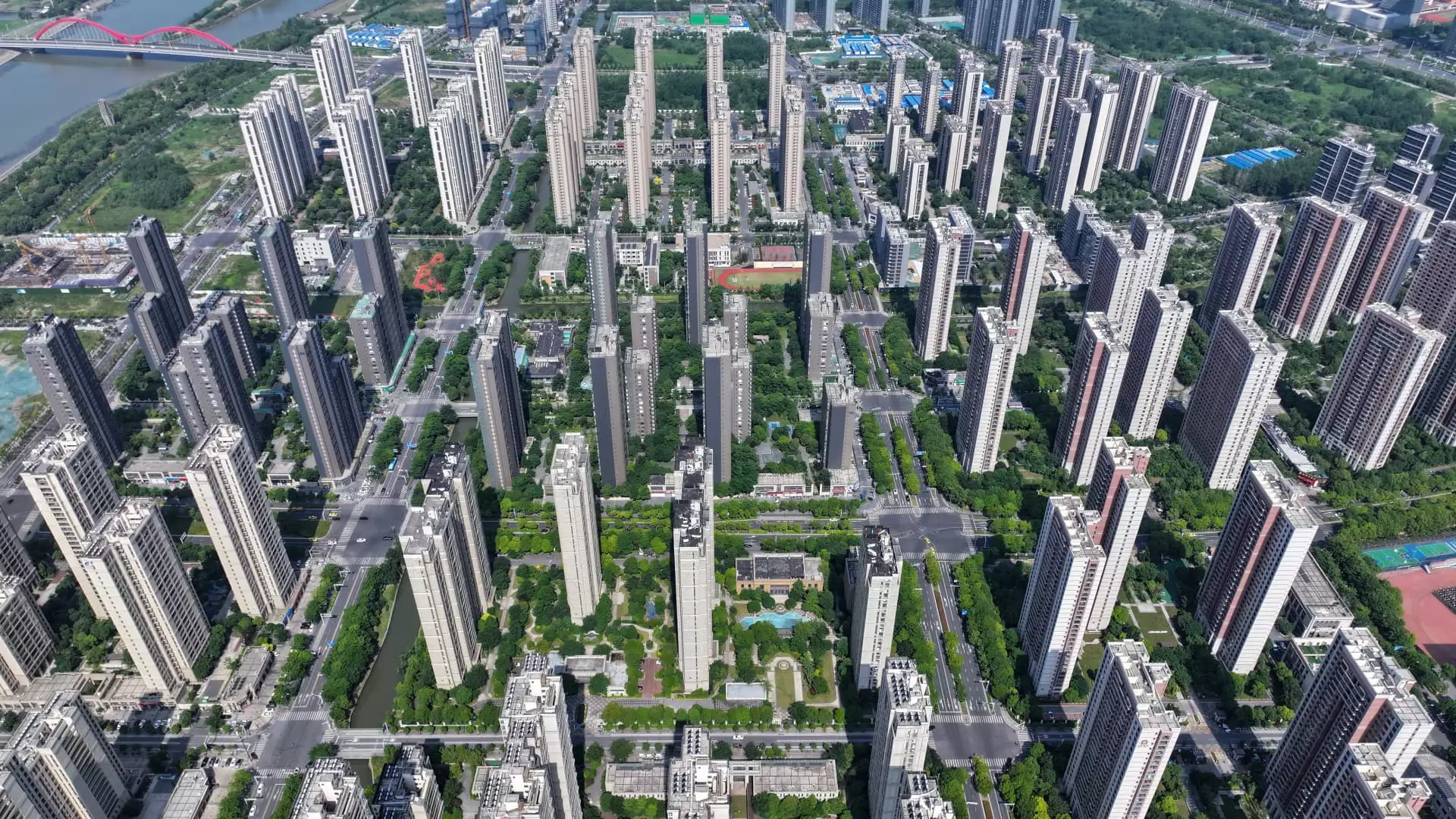In a remarkable turn of events, the Hong Kong stock market has witnessed a significant rebound in Chinese property stocks, marking their highest values in over a year. This surge is attributed to the broader economic stimulus measures enacted by the Chinese government, a move aimed at revitalizing a sector that has long been under strain. At the forefront of this rally is Longfor Group Holdings, which recorded an impressive gain of over 25%, positioning itself as the leading player in this upward trend. Other notable companies in the sector have also reported substantial increases in their stock values, showcasing a collective recovery in investor confidence.
The performance of various real estate companies highlights a reinvigorated interest in the sector. Shimao Group experienced a staggering 87% rise, while Kaisa Group reported a robust increase of 40.48%, both achieving their highest stock prices in over a year. These figures suggest an optimistic outlook among investors as they respond positively to the government’s stimulus efforts. Additionally, China Overseas Land & Investment and China Vanke posted gains of 12.31% and 39.6%, respectively, which further underscores the rebound within the industry. With the Hang Seng Mainland Properties Index surging over 14%, it is clear that the real estate sector is capturing the market’s attention, despite ongoing challenges.
The Chinese government’s recent easing of restrictions in major cities such as Guangzhou, Shanghai, and Shenzhen is a strategic response to bolster homebuyer confidence. By removing previous restrictions on home purchases and relaxing tax requirements, authorities are making concerted efforts to stimulate demand in an industry that accounts for a significant portion of the country’s economy. However, experts, including those from Morgan Stanley, caution that while these measures may stabilize the property market, they are unlikely to trigger a robust recovery in prices or demand. The deep-rooted challenges faced by the sector, primarily a result of the government’s crackdown on excessive debt, continue to loom over its recovery.
Long-Term Challenges Facing the Sector
The real estate market in China has historically represented over 25% of the nation’s GDP. Nevertheless, since the implementation of stringent policies aimed at controlling debt levels, the sector has endured a protracted decline, resulting in more than just temporary discomfort. Analysts assert that the lingering negative effects of this decline will create a demand shortfall that hampers overall economic growth. While the recent stimulus measures provide a glimmer of hope, the broader implications of the past few years continue to hold back the industry from achieving its full potential.
The recent surge in Hong Kong-listed Chinese property stocks reflects a fragile recovery in a sector long beleaguered by debt and regulatory pressures. The stimulus measures introduced may offer temporary relief and restore some market confidence, yet significant obstacles remain. The future trajectory of the real estate industry will depend on the government’s ability to sustain these initiatives and address the underlying challenges that continue to suppress growth. As the markets evolve, steady vigilance will be necessary to navigate this complex landscape effectively.

Leave a Reply